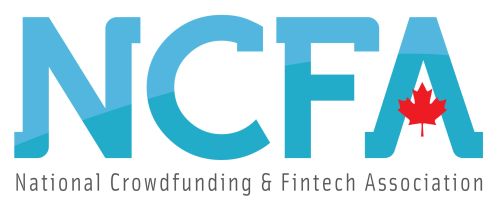Nov 23, 2023

 Image: Unsplash/Alex Wong
Image: Unsplash/Alex WongTransformative Approach to Regulation Focusing on Innovation and Economic Growth
In November 2023, the UK government received a key document, the “Pro-innovation Regulation of Technologies Review – Cross-cutting and Growth Duty,” authored by Professor Dame Angela McLean outlining a transformative approach to regulatory practices, emphasizing innovation and economic growth.
Overview of the Regulators’ Growth Duty
The Regulators’ Growth Duty is a legislative requirement in the UK that mandates most regulatory bodies to consider the impact of their activities on economic growth. This duty is embedded within the broader regulatory framework and aims to ensure that regulators do not unnecessarily impede innovation and business development. It reflects a shift from a purely compliance-based approach to one that actively considers the economic implications of regulatory actions.
See: The UK’s PRA Commitment to International Competitiveness and Growth
Key Guidance
- The guidance emphasizes the need for regulators to find a balance between fulfilling their primary responsibilities (such as ensuring public safety and compliance with the law) and supporting economic growth and innovation.
- Regulators are encouraged to adopt a flexible and proportionate approach to regulation. This means tailoring regulatory actions to the specific context and needs of different industries, minimizing unnecessary burdens on businesses.
- The guidance suggests that regulators should actively engage with businesses and other stakeholders to understand the impact of regulation on economic growth and innovation. This includes seeking feedback and being responsive to the needs of the business community.
- The Regulators’ Growth Duty includes a reporting and accountability requirement, where regulatory bodies are expected to document and demonstrate how they have considered economic growth in their decision-making processes.
Report Recommendations
The McLean report’s recommendations are both forward-looking and pragmatic. They reflect a practical understanding of the rapidly evolving technology landscape and the need for regulatory frameworks that can adapt equally swiftly. These recommendations set the stage for a regulatory environment where innovation is actively encouraged, where regulatory bodies are partners in progress rather than mere gatekeepers.
See: UK’s Future Crypto and Stablecoin Regulation
1. Importance of a coordinated, cross-government approach to innovation
- The report underlines a critical shift in regulatory thinking – from a traditional, compliance-focused approach to one that actively fosters innovation.
- Central to this strategy is the creation of the Department for Science, Innovation, and Technology (DSIT) and the National Science and Technology Council (NSTC).
2. Balancing Regulatory Duties with Innovation Promotion
- A key insight from the report is the delicate balance regulators must maintain between their traditional roles and the imperative to spur innovation. The proposed revision of the Regulators’ Growth Duty guidance seeks to recalibrate this balance to better align with the fast-paced nature of technological advancement, ensuring regulators are not only protective but also proactive in supporting innovative developments.
- It aims to equip regulators with the tools and mandate to not just oversee, but actively promote, growth and innovation.
- This approach recognizes the dual responsibility of regulators in ensuring public safety and fostering an ecosystem where new technologies can thrive.
3. Addressing Skills and Resource Gaps
- The report also casts a spotlight on a crucial challenge facing regulatory bodies – the gap in specialized skills and resources. It calls for more flexible hiring practices and pay scales, enabling regulatory bodies to attract top talent, particularly in niche technology areas.
See: Canada’s Open Banking Journey: What Canada Can Learn from the UK | Interview with Helen Child, Founder of Open Banking Excellence
- Furthermore, it advocates for systematic secondments between government, academia, and industry, facilitating a cross-pollination of ideas and expertise. This initiative promises to create a more dynamic and informed regulatory workforce, adept at navigating the complexities of emerging technologies.
Implications
The guidance challenges regulators to think beyond the traditional scope of their roles. It requires a more dynamic approach to regulation, one that acknowledges the importance of economic growth and technological advancement. Regulators are expected to be enablers of innovation, not just overseers of compliance.
For businesses this duty is seen as a positive development, as it signals a more supportive regulatory environment. It suggests a future where regulatory hurdles are minimized, where innovation is met with enthusiasm and support rather than skepticism and red tape. This shift is likely to attract more investment in technology sectors, positioning the UK as a global leader in innovation.
Is There a Regulators’ Growth Duty in Canada?
The Ontario Securities Commission (OSC) expanded its mandate, as part of the 2021 Ontario Budget Legislation, to include fostering capital formation and encouraging economic growth through increased competition.
See: The Formation of the Canadian Digital Regulators Forum and its Impact on the Digital Economy and Consumer Privacy
This expansion suggests a parallel with the UK’s Regulators’ Growth Duty, focusing on balancing regulatory responsibilities with economic growth and innovation, and aligns the OSC’s objectives with those of other Canadian provinces and other international jurisdictions including the UK, Australia, and Singapore.
Blueprint for the Future
The “Pro-innovation Regulation of Technologies Review” serves as a blueprint for other nations grappling with the challenges of regulating in an era of rapid technological change. It offers a vision of agile and proactive regulation and represents a modern approach to regulation, one that recognizes the importance of balancing protective measures with the need to foster economic growth and innovation. This approach is expected to contribute significantly to creating a business-friendly environment, encouraging investment and development in cutting-edge technologies.

 The National Crowdfunding & Fintech Association (NCFA Canada) is a financial innovation ecosystem that provides education, market intelligence, industry stewardship, networking and funding opportunities and services to thousands of community members and works closely with industry, government, partners and affiliates to create a vibrant and innovative fintech and funding industry in Canada. Decentralized and distributed, NCFA is engaged with global stakeholders and helps incubate projects and investment in fintech, alternative finance, crowdfunding, peer-to-peer finance, payments, digital assets and tokens, artificial intelligence, blockchain, cryptocurrency, regtech, and insurtech sectors. Join Canada’s Fintech & Funding Community today FREE! Or become a contributing member and get perks. For more information, please visit: www.ncfacanada.org
The National Crowdfunding & Fintech Association (NCFA Canada) is a financial innovation ecosystem that provides education, market intelligence, industry stewardship, networking and funding opportunities and services to thousands of community members and works closely with industry, government, partners and affiliates to create a vibrant and innovative fintech and funding industry in Canada. Decentralized and distributed, NCFA is engaged with global stakeholders and helps incubate projects and investment in fintech, alternative finance, crowdfunding, peer-to-peer finance, payments, digital assets and tokens, artificial intelligence, blockchain, cryptocurrency, regtech, and insurtech sectors. Join Canada’s Fintech & Funding Community today FREE! Or become a contributing member and get perks. For more information, please visit: www.ncfacanada.org
hile safeguarding the public interest.
Related Posts
- SEO Powered Content & PR Distribution. Get Amplified Today.
- PlatoData.Network Vertical Generative Ai. Empower Yourself. Access Here.
- PlatoAiStream. Web3 Intelligence. Knowledge Amplified. Access Here.
- PlatoESG. Carbon, CleanTech, Energy, Environment, Solar, Waste Management. Access Here.
- PlatoHealth. Biotech and Clinical Trials Intelligence. Access Here.
- Source: https://ncfacanada.org/insights-from-the-uks-pro-innovation-regulation-review/
- :is
- :not
- :where
- 150
- 200
- 2018
- 2021
- 2023
- 23
- 300
- 32
- a
- Academia
- accountability
- actions
- actively
- activities
- adapt
- addressing
- adept
- adopt
- advancement
- advisory
- advocates
- affiliates
- agile
- aims
- alex
- align
- Aligns
- also
- alternative
- alternative finance
- an
- and
- approach
- architecture
- ARE
- areas
- artificial
- artificial intelligence
- AS
- Assets
- At
- attract
- Australia
- authored
- Balance
- balancing
- Banking
- BE
- become
- being
- Better
- between
- Beyond
- blockchain
- blueprint
- bodies
- both
- broader
- budget
- business
- business development
- businesses
- but
- by
- cache
- CAN
- Canada
- Canadian
- capital
- capital formation
- challenge
- challenges
- change
- child
- closely
- commitment
- community
- competitiveness
- complexities
- compliance
- Consider
- considered
- considers
- consumer
- consumer privacy
- context
- contribute
- coordinated
- Council
- create
- Creating
- creation
- critical
- Crowdfunding
- crucial
- crypto
- cryptocurrency
- cutting-edge
- Cutting-Edge Technologies
- decentralized
- Decision Making
- demonstrate
- Department
- Development
- developments
- different
- digital
- Digital Assets
- Digital economy
- distributed
- do
- document
- dynamic
- Economic
- Economic growth
- economy
- ecosystem
- Education
- embedded
- emerging
- emerging technologies
- emphasizes
- emphasizing
- enabling
- encouraged
- encouraging
- engage
- engaged
- ensure
- ensuring
- enthusiasm
- Environment
- equally
- Era
- Ether (ETH)
- evolving
- Excellence
- expansion
- expected
- expertise
- facilitating
- facing
- fast-paced
- feedback
- finance
- financial
- financial innovation
- fintech
- flexible
- focusing
- For
- formation
- Forum
- forward-looking
- Foster
- fostering
- fosters
- founder
- Framework
- frameworks
- from
- fulfilling
- funding
- funding opportunities
- future
- gap
- get
- Global
- Government
- grappling
- Growth
- guidance
- Have
- helen
- helps
- High
- Hiring
- How
- http
- HTTPS
- Hurdles
- ideas
- image
- Impact
- imperative
- implications
- importance
- in
- includes
- Including
- increased
- industries
- industry
- information
- informed
- Initiative
- Innovation
- innovative
- insight
- insights
- Insurtech
- Intelligence
- interest
- International
- Interview
- investment
- IT
- ITS
- Jan
- journey
- jpg
- jurisdictions
- just
- Key
- landscape
- Law
- leader
- LEARN
- Legislation
- likely
- maintain
- mandate
- mandates
- Market
- max-width
- means
- measures
- member
- Members
- mere
- met
- minimizing
- Modern
- more
- most
- must
- National
- National Science
- Nations
- Nature
- navigating
- Need
- needs
- networking
- New
- New technologies
- niche
- November
- objectives
- of
- Offers
- on
- ONE
- only
- Ontario
- open
- open banking
- opportunities
- or
- Orange
- osc
- Other
- outlining
- oversee
- Parallel
- part
- particularly
- partners
- Pay
- payments
- peer to peer
- perks
- plato
- Plato Data Intelligence
- PlatoData
- please
- positioning
- positive
- Practical
- practices
- primary
- privacy
- Proactive
- processes
- Professor
- Progress
- projects
- promises
- promote
- proposed
- Protective
- provides
- provinces
- public
- Publishing
- purely
- rapid
- rapidly
- rather
- received
- recognizes
- recommendations
- Red
- reflect
- reflects
- Regtech
- regulating
- Regulation
- Regulators
- regulatory
- report
- Reporting
- represents
- requirement
- requires
- resource
- Resources
- responsibilities
- responsibility
- responsive
- review
- roles
- s
- safeguarding
- Safety
- scales
- Science
- Science and Technology
- scope
- Sectors
- Securities
- seeking
- seen
- serves
- service
- Services
- set
- shift
- should
- significantly
- Singapore
- Skepticism
- skills
- specialized
- specific
- Spotlight
- stablecoin
- stablecoin regulation
- Stage
- stakeholders
- Stewardship
- Strategy
- such
- Suggests
- support
- Supporting
- supportive
- swiftly
- tailoring
- tape
- technological
- Technologies
- Technology
- than
- that
- The
- the Law
- the UK
- their
- There.
- These
- they
- Think
- Thinking
- this
- those
- thousands
- Thrive
- Through
- to
- today
- Tokens
- tools
- top
- traditional
- transformative
- Uk
- UK government
- understand
- understanding
- unnecessarily
- unnecessary
- Unsplash
- vibrant
- Visit
- What
- with
- within
- wong
- works
- zephyrnet











